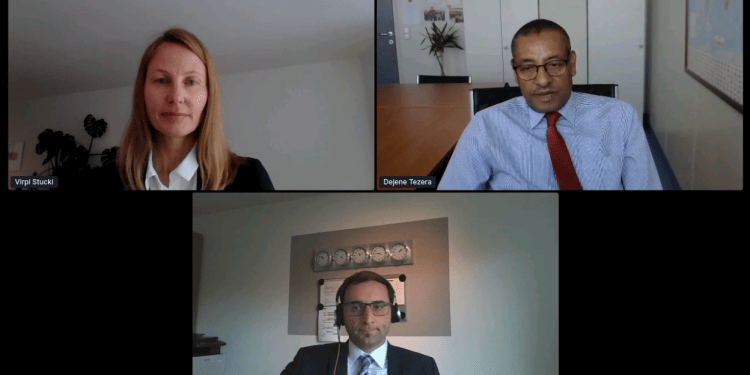
Oct. 8 marked the final day of the LKDF Forum, a virtual event covering the shortage of green skills, hosted by the United Nations Industrial Development Organization (UNIDO) and their affiliate, the Learning and Knowledge Development Facility (LKDF).
The issue, explained in more detail in an earlier Impakter article, is that the world’s workforce is ill-prepared to shift to more eco-friendly jobs. Present-day workers don’t have the training to switch to sustainable labor of careers that, in many cases, don’t even exist yet.
Read about Forum Day 1 here
Read about Forum Day 2 here
The forum had begun with a listing of problems and obstacles to change. As the talks progressed, they became more focused on solutions. And while private individuals and companies might be able to achieve a lot, panelists agreed that the most realistic solutions involved governmental policy.
The crucial point when it comes to implementing green skill policy, as is with any worldwide effort to combat climate change, is that large groups of people need to work as a unit, making decisions together. It can’t just be a few powerful people who hold the power of action or inaction. National governments are organizations large enough to enact change while still being beholden to the will of its citizens.
Related Articles: Green Skills Revolution | LKDF Forum Day 2 | LKDF Forum Day 1
Shada Islam, a European Union representative, spoke about green outreach to developing countries and the Green Deal. Europe has seen great success in moving its government(s) toward greener policies, to the point where the EU government is actively working “to become the first continent to have climate neutrality by 2050.”
As for what specific actions to take, most suggestions involve government grants and subsidies. Islam suggested “a badly needed stimulus” to boost funds to sustainability-related projects. Speakers Richard Johnson and Zach Levey discussed social impact bonds, which are results-based contracts that remove much of the risk involved in green skills investment. While there are multiple options for execution, all the most realistic solutions involve convincing governments, and taxpayers, to open up their wallets.
As instruments of change, governments are not without their own flaws. Many national political bodies don’t represent the interests of all of their constituents. Elisabet Montgomery, an employment policy specialist, described a ‘pro-poor’ approach to employment reform, to make sure to include those who would otherwise not have a voice in the green skills conversation. “We can address these problems on a system level instead of an individual level,” she said.
Cleophas Taizaka and Jonathan Lemisa of Zambia described some of the challenges that the Zambian people had with their own government. Taizaka said that “many were not happy with the level of equality that was coming from the public sector.” The average citizen had little faith in their government to make representative decisions. In addition to problems with inequality, Lemisa pointed out that many governments “prioritize nationalization,” focusing on actions that help their country rather than the whole world.
Governments need public support to take action. Without it, they may never get a project off the ground. That is why, again, the speakers emphasized education. The public needs to be made aware of their options so they can lend their voices to the decision-making process. “Much of our curricula has lagged too far behind. Green skills should be part of the curricula,” Taizaka said.
The forum ended with a private event, where most of the panel experts held a workshop to discuss how they would best be able to communicate these topics to the average person. Those who came to speak at this massive event were extremely knowledgeable and successful in their respective fields. Now that the discussion is over, they will hopefully be much better equipped to share their ideas with the rest of the world.
Editor’s Note: The opinions expressed here by Impakter.com columnists are their own, not those of Impakter.com.









